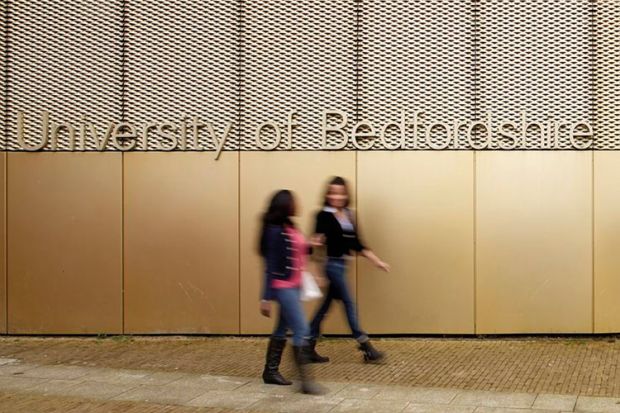Saudi students were not given preferential treatment by the University of Bedfordshire when they were allowed three attempts to pass an exam, the Quality Assurance Agency has found.
The standards watchdog was asked to investigate concerns raised in November 2014 that the university appeared to bend its academic rules to give law, business and computing students sponsored by the Saudi Arabian government an additional chance to resit their exams.
Sponsored students were given three attempts to pass an exam before having to retake it the following year, while other students had just two chances in a single year, it was alleged.
The Saudi students were treated differently because they would have lost their government sponsorship if they had not been allowed to progress to the next year, a complainant said.
However, the QAA has now said there was “no evidence to support the allegations” about the breach of academic regulations and special treatment for some sponsored students.
It found the decision to offer a third retake within a single year was “legitimate” under the exceptional circumstances rules operated by Bedfordshire.
The university had invoked an exception granting a third re-take because a total of 74 sponsored students, mainly Saudi Arabian, had failed to achieve the grades necessary for progression after misunderstanding rules about how many credits and minimum unit grades they needed to pass a year.
The 74 students qualified for the exception because they were “unable to embark on part-time study to make good their failure”, the university said.
However, the QAA has said the university should amend its implementation of exceptions to its academic regulations in the future – one of several areas of improvement identified by the review team.
The exception for the sponsored students – granted using powers delegated to the university’s Teaching Quality and Standards Committee (TQSC) – was “well established, transparent in their operation and generally understood by the staff concerned”, but was “not…formally documented”, the QAA said.
There was also no formal document produced setting out the findings from an investigation into why so many sponsored students were set to fail their year, the QAA also said.
External examiners should also be consulted over the approval of regulatory exceptions, the QAA also recommended.
Many of the review team’s recommendations over the resits, which took place in 2012, have already been addressed by a regulatory review by the university that came into force in September, the QAA said.
The university’s vice-chancellor Bill Rammell said he was pleased that Bedfordshire had been “completely cleared by the QAA”.
“They have concluded there is no evidence to support the allegations, which we regarded as vexatious and malicious,” he said.
“The university has never permitted the preferential treatment of students by virtue of their nationality or course of study,” he added.
He said the university applies its regulations “consistently and fairly”, and allows exceptions only in special circumstances, such as when students could be “seriously disadvantaged”, he said.
However, the complainant – who does not want to reveal his identity – told the Times Higher Education that he viewed the report as “very weak and too lenient on Bedfordshire”.
He questioned the lack of documentation regarding the exception made by the TQSC and also the absence of a report regarding Saudi student complaints.
“We have complaints and appeals by Saudi students (there is no documentary proof of this), an investigation (no documentary proof of this or the conclusions) and a decision by the TQSC to permit an exception to the regulations (again no documentary proof of this),” he said, claiming this was “all very odd and implausible”.




